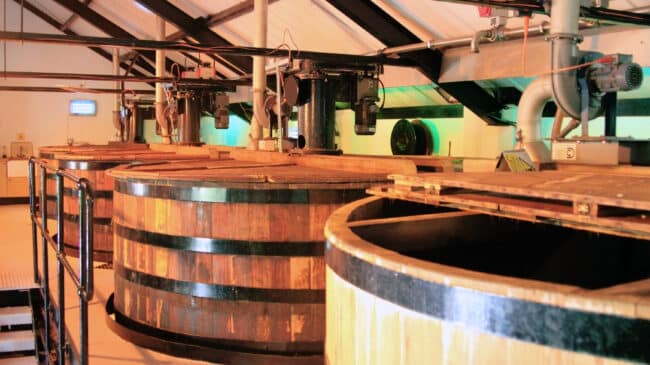Small-scale producers of alcoholic beverages have been one of the many industries hurt by the COVID-19 pandemic. Various rules and regulations have made purchasing distilled spirits more difficult, and at times impossible, especially in places where government distribution and/or retail monopolies exist on spirits. Normally heavily reliant on visitors for on-site sales, small breweries, distilleries, and wineries have been impacted by various pandemic-related policies, including the early lockdowns and ongoing seating restrictions in some cities, along with consumers shifting to businesses that can deliver their products. Smaller alcoholic beverage producers also typically have more trouble finding shelf space in retail establishments, further limiting their reach. Going forward, one way to put smaller alcoholic beverage producers on a more level playing field would be to allow them to ship directly to consumers.
By allowing producers to use existing parcel delivery services (except the United States Postal Service, which Congress prohibits from shipping booze), small-scale alcoholic beverage makers would be given the opportunity to better compete with larger distributors. Many states already allow that to some degree, but the practice usually gets limited to beer and wine only.
Limiting direct-to-consumer shipping to certain alcoholic beverages but prohibiting others makes no sense. In 2005, the Supreme Court ruled in Granholm v. Heald that states cannot discriminate against others when allowing direct-to-consumer shipping of wine (i.e. allowing in-state producers to ship to consumers but not out-of-state ones). Allowing the shipping of wine and beer should open the door for spirits, too.
Predictably, the most vocal opponents of direct-to-consumer distilled spirits shipping are distilled spirits wholesalers themselves. Partnered with teetotaler politicians representing districts where state (and in North Carolina, local) agencies monopolize liquor retail, private liquor wholesalers naturally want to prevent the sale of liquor through channels where they play no role in distribution.
So instead of trying to encourage greater choice for consumers by offering more options to purchase spirits, the liquor wholesaler-distributor crowd would rather curry favor from state politicians who abstain from buying the products those companies distribute. The reason is simple: Liquor wholesalers want to protect themselves from new competition, and direct-to-consumer shipping introduces new competition for them. Allowing direct-to-consumer shipping of alcoholic beverages typically takes legislation to implement where it isn’t presently allowed, and plenty of politicians oppose making it easier to obtain alcoholic beverages in general.
Also, predictably, the aligned otherwise-enemies (liquor distributors and anti-alcohol legislators) make appeals to getting rid of “illegal” booze and fears of “common carriers conduct little to no age verification, and when attempted, failed about half the time,” citing a single decade-old study in one of the most highly regulated alcohol markets—North Carolina—in the United States.
Parcel delivery services require age verification of alcoholic beverage shipments and if their delivery drivers violate that policy, they can lose their jobs. Yes, in some cases minors would likely still end up possessing alcohol, but that can happen regardless of whether wholesalers played a role in getting the product to consumers.
It’s obvious why distilled spirits distributors don’t want direct-to-consumer shipping: It takes them out of the equation. Crocodile tears about safety are easily exposed when cried by self-interested firms that face zero liability over their products ending up in the hands of minors. Remember, liquor wholesalers never have to verify anyone’s age, so they can never be held liable for selling to minors, even though the products they distribute end up being consumed by minors illegally. Just like Fanucci in The Godfather, Part II, liquor wholesalers cannot be satisfied unless they “wet (their) beak”—making money off every drop of spirits sold.
Liquor wholesalers make no money off DTC transactions, so they oppose DTC shipping. It’s really that simple.
But while the existence of wholesaler firms in the alcoholic beverage industry makes lots of sense for many types of producer and retailer arrangements, there’s no reason why all alcoholic beverages should be subject to the “3 Tier” system. It is dubious for an organization to advocate for “market access” and the “prevention of monopolies,” while insisting transactions outside of their own cartel’s reach be prevented. Distilled spirits distributors opposing direct-to-consumer options should show why they are so important—openly and honestly, not through seeking to prevent competitive channels that enhance consumer access, an idea the, without any irony, state they support.
When liquor wholesalers seek alliances with politicians who would rather their enterprises not exist, consumers and taxpayers are right to question the reason for the arrangement. When there is competition, customers benefit. Competition helps raise the quality of products and services and helps keep prices low. It’s time for states to stop limiting the shipment of alcoholic beverages.

